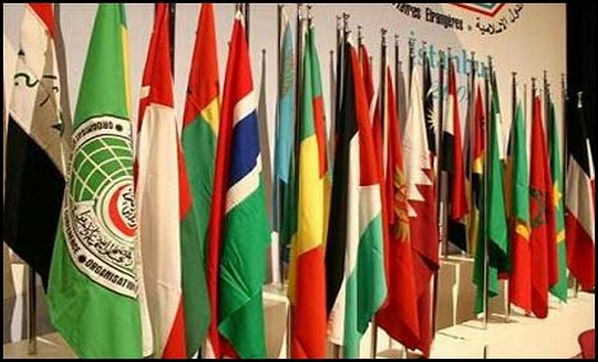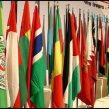
Joining Islamic Conference Could Help Kyiv Defend Crimean Tatars
Publication: Eurasia Daily Monitor Volume: 11 Issue: 76
By:

Mustafa Cemilev, a member of the Ukrainian parliament and leader of the Crimean Tatar movement, says that Kyiv will seek membership in the Organization for Islamic Cooperation (OIC—formerly called the Organization of the Islamic Conference), a move that could help Ukraine rally support in the Muslim world for the recovery of Crimea. That seems especially likely now that the Russian occupying authorities on the peninsula have denounced the Crimean Tatars as extremists, banned any mention of Cemilev, and declared that he will not be allowed to return to Crimea before 2019.
Last Thursday (April 17), Cemilev said that Ukraine wants to become an observer of the Organization of Islamic Cooperation—an organization that unites 57 Muslim-majority countries, has an observer seat at the United Nations, and of which the Russian Federation is already an observer. The Crimean Tatar leader said that he had recently spoken with the OIC secretary general about Kyiv’s becoming an associate member given that Moscow already is (islam.in.ua/3/ukr/full_news/14357/visibletype/1/index.html).
The OIC not only is a forum where Muslim countries can discuss issues of common concern but also frequently speaks in the name of Muslim-majority countries—who have a combined population of more than a billion. Given developments in Crimea over the last few days, the attitude of the international Muslim community may become both a new sphere of conflict between Moscow and Kyiv and an important resource for Ukraine as it seeks to end the Russian occupation of the peninsula.
As part of his ideological campaign to seize Crimea, Russian President Vladimir Putin promised that he would “rehabilitate” the Crimean Tatars. However, tensions have been growing between that nation, which Stalin deported to Central Asia in 1944 and whose leaders have been consistently loyal to Ukraine, and the ethnic Russians in Crimea, on whom Putin has relied and who are angry about what they see as Crimean Tatar “seizures” of property that they believe they should control.
On Tuesday (April 22), when Putin officially signed the decree “rehabilitating” the Crimean Tatars (https://en.itar-tass.com/russia/728923), the conflict between the Crimean Tatars and the ethnic Russians of Crimea reached a new peak. The day before, while welcoming Cemilev back to Crimea, the Mejlis (representative body of the Crimean Tatars in Crimea) raised a Ukrainian flag above its building. Masked men in camouflage, almost certainly representing the Russian authorities, broke in to tear the flag down.
The links of these men to the Russian government in Crimea—and indeed to Moscow itself—were suggested by Sergey Aksyonov, the head of the occupation authorities. He accused the Crimean Tatars of “provoking” inter-ethnic tensions by their continuing support of Ukraine and said that if members of that nation disagree with the 97 percent of voters in Crimea who had voted to leave Ukraine and join Russia, “then they [the Crimean Tatars] should leave!” To some observers that represents a signal that the Russian government in Crimea is prepared to provoke or exploit any conflict against the Crimean Tatars to drive them off the peninsula (echo.msk.ru/blog/dubnov/1305458-echo/).
Still more ominously, the Russian authorities have banned Cemilev from returning to the Russian Federation and Russian-occupied Crimea until 2019 because of his outspoken and repeated declarations of loyalty to Ukraine (https://www.hurriyetdailynews.com/russia-bans-tatar-leader-from-crimea-tatar-assembly.aspx?pageID=238&nID=65378&NewsCatID=359). Not only will that ban further exacerbate relations between the Crimean Tatars and ethnic Russians, but it will mean that, in the case of violence, Moscow and Aksyonov will not have anyone with his level of authority in the Crimean Tatars community to talk to.
And such violence is likely. It might either be provoked by the Russian side, as seems more likely, or it may be the result of an accidental spark. The latter scenario is particularly possible on May 25, when tens of thousands of Crimean Tatars who remain Ukrainian citizens, having refused to accept Russian passports, are certain to try to cross into Kyiv-controlled areas in order to vote in the Ukrainian presidential elections. Such movements across a border that one side does not accept are an invitation to disaster.
Turkey and other Muslim countries have been longtime supporters of the Crimean Tatars—fellow Muslims who played a major role in the reformist and ultimately nationalist wave that swept through much of the Islamic world 120 years ago. These countries have continued to make statements in support of the rights of that community (https://www.todayszaman.com/news-345950-ankara-uneasy-with-crimean-tatar-situation.html), including the right of return and the right of national self-determination in the form of the restoration of a Crimean Tatar Republic.
Assuming that the OIC takes Ukraine in, and there is every reason to expect that will happen in the coming weeks, Kyiv will certainly press this Muslim organization to speak out even more forcefully because now Ukraine’s interests and those of the Crimean Tatars are in complete correspondence. That sets the stage for conflict with Moscow, which stands to lose a great deal of influence in the Muslim world if it continues to oppress a group that the OIC can be counted on to support.




